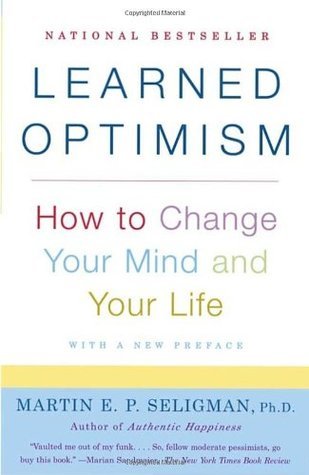Learned Optimism Book Summary
How to Change Your Mind and Your Life
TL;DR
In "Learned Optimism," Martin E.P. Seligman explores how individuals can cultivate a positive mindset through practical techniques, challenging pessimistic thoughts, and adopting an optimistic explanatory style to enhance overall well-being and resilience.
What is Learned Optimism about
"Learned Optimism" by Martin E.P. Seligman introduces the notion that optimism can be learned and practiced, drawing on decades of research in positive psychology. Seligman argues that our explanatory style—the way we interpret events and situations—plays a crucial role in our happiness and mental health. The book presents techniques to shift from a pessimistic outlook to a more optimistic one, such as recognizing and adjusting habitual negative thoughts. By doing so, individuals can combat depression, improve their health, and foster a more fulfilling life. Seligman also provides insights on how to instill optimism in children and create supportive environments in schools and workplaces, making the book a comprehensive guide for personal growth and resilience.
Learned Optimism 8 Key Takeaways
The Three P's of Optimism
Seligman introduces the concepts of Personalization, Permanence, and Pervasiveness as key elements of learned optimism. Understanding these dimensions helps individuals reframe their thoughts and reactions to challenges, fostering resilience.
Explanatory Style
Learning to alter one's explanatory style from a pessimistic to optimistic perspective can significantly impact emotional well-being and overall life satisfaction.
Coping with Adversity
Seligman emphasizes that optimism is a powerful tool for coping with adversity, showing that those who adopt an optimistic mindset are better equipped to face life's challenges.
Positive Self-Talk
The book encourages the practice of positive self-dialogue as a means to combat negative thoughts, which can lead to improved mental health and increased happiness.
Encouraging Optimism in Others
Seligman outlines strategies for encouraging optimism in children and colleagues, underscoring the importance of role modeling and supportive communication.
Benefits of Optimism
Practicing learned optimism can enhance physical health, boost immunity, and contribute to greater life satisfaction and personal achievement.
Critiques of Learned Optimism
Seligman addresses critiques regarding learned optimism, acknowledging that some may question the effectiveness of optimism training compared to merely reducing pessimism.
Practical Techniques
The book is filled with practical exercises and techniques designed to help readers implement learned optimism in their daily lives.
Top Learned Optimism Quotes
- "Optimism is not just a disposition; it’s a skill that anyone can learn and practice."
- "The greatest weapon against stress is our ability to choose one thought over another."
- "Changing your explanatory style is the key to changing your life."
Who should read Learned Optimism?
This book is ideal for anyone seeking to improve their mental well-being and foster a more positive outlook on life. Those interested in psychology, personal development, and effective coping strategies will find valuable insights and practical techniques to help them navigate life's challenges with resilience and optimism.
Learned Optimism Best Reviews
- "Seligman's work is a pivotal contribution to psychology, revealing how a simple shift in perspective can transform lives." - Psychology Today
- "A groundbreaking book that offers practical strategies for cultivating a positive mindset, making it essential reading for anyone looking to enhance their well-being." - The New York Times
- "Learned Optimism is not just a theory but a practical guide that equips readers with the tools to unlock their potential and lead happier lives." - Harvard Business Review
People also liked these summaries
Learned Optimism FAQs
What are the 3 P's of learned optimism?
The Three P's of learned optimism are Personalization, Permanence, and Pervasiveness. These concepts help individuals reframe their thoughts and reactions to challenges, fostering resilience and productivity.
How can learned optimism improve my life?
Practicing learned optimism can enhance your mental health, boost your immune system, and increase overall happiness by helping you adopt a positive outlook and cope better with life's challenges.
What techniques can I use to teach learned optimism?
To teach learned optimism, model positive thinking, highlight optimistic perspectives in everyday situations, and encourage children to recognize and challenge pessimistic thoughts.


